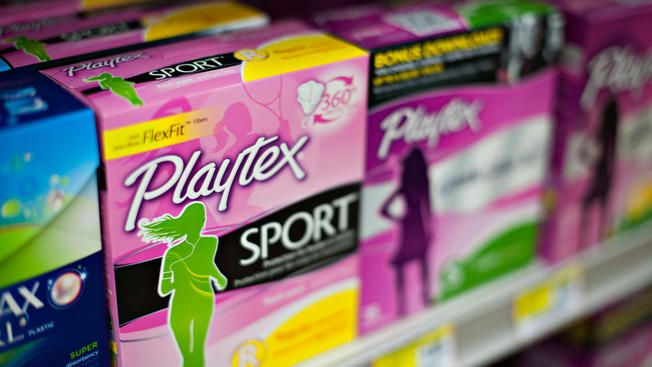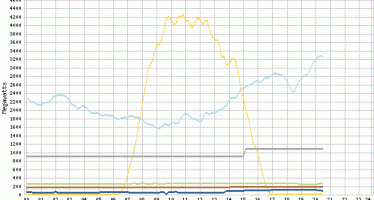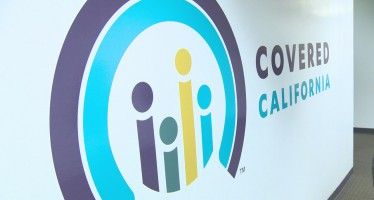‘Gender injustice’ behind call to reduce taxes on tampons
SACRAMENTO – In his veto message of a series of tax-reduction bills last September, Gov. Jerry Brown explained that “tax breaks are the same as new spending – they both cost the general fund money.” He said such measures should be on the table during budget negotiations, “so that all spending proposals are weighed against each other at the same time.”
 Among the bills that were vetoed at that time were two that would have repealed sales taxes on diapers and tampons. Both measures passed unanimously, but the governor wanted to assure that new spending-related measures didn’t lead to deficits. So the authors of those two measures are back again this year – but this time they are addressing the revenue issue.
Among the bills that were vetoed at that time were two that would have repealed sales taxes on diapers and tampons. Both measures passed unanimously, but the governor wanted to assure that new spending-related measures didn’t lead to deficits. So the authors of those two measures are back again this year – but this time they are addressing the revenue issue.
The Common Cents Tax Reform Act, Assembly Bill 479, would “exempt diapers, tampons, pads and other basic necessities from California’s sales tax,” according to a statement last week from its authors. The February version of the bill would have exempted sales taxes from the sale, storage and use of various physician-prescribed medicines, but was amended to target diapers and feminine products.
To deal with the governor’s concerns, its co-authors (Assembly members Cristina Garcia, D-Bell Gardens, and Lorena Gonzalez Fletcher, D-San Diego) want to raise taxes to offset the tax cut. The bill would increase the excise tax by $1.20 per gallon on hard liquor that is 100 proof and and by $2.40 a gallon for liquors that are more than 100 proof.
They estimate the tax increase will add about 1.5 cents per gallon to the typical hard-liquor serving and say that it’s a modest increase, but the tax rate would be boosted by more than 36 percent – raising it from $3.30 a gallon to $4.50 a gallon. The state’s excise taxes, however, would remain the same on the sales of beer and wine.
“Common sense is that liquor is a choice and a luxury and human biology is not,” said Garcia, who authored the tampon-tax bill last year. “There is no happy hour for menstruation. Our tax code needs to reflect the fact that it’s not OK to tax women for being born women.” Gonzalez Fletcher, who had authored the diaper-tax measure, depicted the matter as one of “babies over booze.” Because the bill requires a tax increase, it will need two-thirds supermajority support in the Legislature.
But opponents of the legislation caution against using the tax code to favor some goods over others. “Taxing drinks to reduce the taxes on other consumer goods is folly – not least because retailers will mark up diapers and feminine care products to their current price,” said Kevin Kosar, a senior fellow of the R Street Institute in Washington, D.C., and author of the 2016 book, “Moonshine: A Global History.”
“Drink taxes should only cover the social costs they produce – not expenses attributable to normal bodily functions like defecation and menstruation,” he added. “What’s next – taxing drinks to pay for toilet paper and fingernail clippers?”
This is likely to become a partisan issue. Some California Republicans supported previous efforts to reduce taxes on diapers and tampons, figuring any tax reduction is a good thing. Likewise, many Republicans generally took issue with the governor’s statement equating tax cuts as spending. If a cut is the same thing as a spending hike, then it implies the government – rather than individuals – is the steward of all income. But they appreciate Brown’s insistence the budget remain balanced, which means any diversion of revenue has to be made up somewhere else.
California Democrats are jumping on a national “gender equity” campaign designed to reduce the prices of feminine products and other necessities. For instance, the Washington Post reported that New York’s Democratic Gov. Andrew Cuomo last year signed a law exempting sales tax from tampons and Washington, D.C.’s Democratic mayor signed a law that also removes the tax from diapers. Cuomo blasted the tax as regressive – meaning it hurts the poor the most – and called it a “matter of social and economic justice.”
Assembly Bill 479 isn’t the only recent effort to rearrange the tax code to favor in a targeted manner. “The Teacher Recruitment and Retention Act of 2017,” introduced by Democratic state Sens. Henry Stern, D-Agoura Hills, and Cathleen Galgiani, D-Stockton, would exempt public-school teachers from paying state income tax on their teacher salaries if they stay in the field for at least five years. The goal is to address a shortage of classroom teachers.
The diaper/tampon exemption would be revenue-neutral because of the corresponding booze-tax increase, but the teacher exemption is estimated to cost more than $617 million a year. Although the state’s highly progressive tax code already is filled with special privileges for some and higher tax rates for others, critics worry that this new spate of tax exemptions could spark a frenzy of similar bills, and the slow expansion of state tax exemptions from one favored group to another.
When Gov. Brown vetoed seven tax bills last year, he noted that their cumulative effect would be to reduce revenues by around $300 million. He cautioned about cutting such revenues “when the state’s budget remains precariously balanced.”
Although there’s disagreement on the likelihood of new deficits, there’s little question that California’s budget remains as precarious as ever. That gives the teacher exemption a huge obstacle – but it’s unclear what the governor might do if AB479 passes now that supporters of the tampon and diaper exemptions identified a tax hike to make up for lost revenue.
Steven Greenhut is Western region director for the R Street Institute. Write to him at [email protected].
Steven Greenhut
Steven Greenhut is CalWatchdog’s contributing editor. Greenhut was deputy editor and columnist for The Orange County Register for 11 years. He is author of the new book, “Plunder! How Public Employee Unions are Raiding Treasuries, Controlling Our Lives and Bankrupting the Nation.”
Related Articles
Recalling Honig, A Man Of 'Conviction'
JAN. 10, 2010 By K. LLOYD BILLINGSLEY Gov. Jerry Brown has appointed Bill Honig to the State Board of Education,
Solar crash ramped up CA natural gas power
Yesterday a problem struck California’s electricity system that wasn’t supposed to happen until at least 2015. Freak low-lying clouds
Covered CA adds greater complexity to tax system
Tax time has become even more of a challenge under the Affordable Care Act, and in California, taxpayers have found




